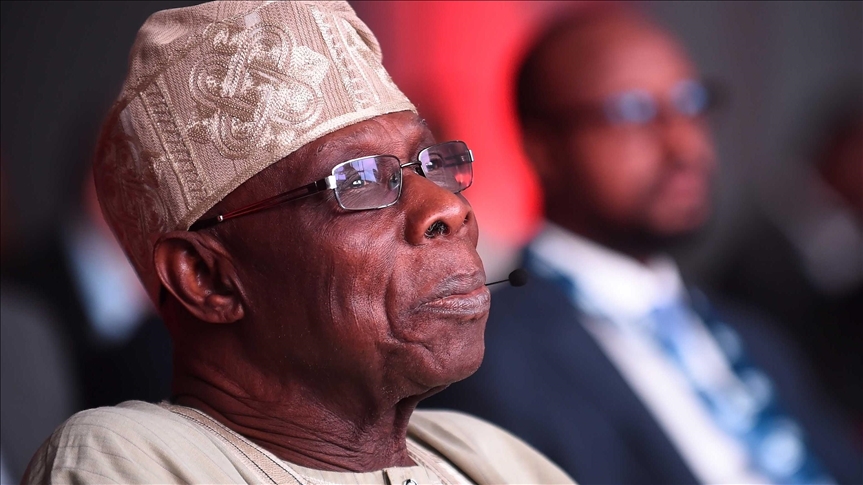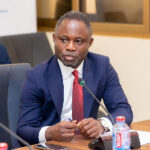
“ When I was handling the situation in Ethiopia, they were waiting for European money or American money before I could start. But when we started using the AU Peace Fund, things changed. If we can do this for peace, we can certainly do it for health ”
Former Nigerian President Olusegun Obasanjo
At the Africa Health Sovereignty Summit held in Accra on August 6, 2025, former Nigerian President Olusegun Obasanjo delivered a compelling call to action for a continent-wide financing mechanism dedicated solely to health. Drawing on his own experience as a special envoy to crisis zones in Ethiopia and the Democratic Republic of Congo, Obasanjo emphasized the chronic delays that plague health interventions when African nations rely exclusively on foreign assistance. His words resonated as an urgent reminder that timely, Africa-led resources can dramatically transform the speed and efficacy of emergency response systems across the continent.
Central to Obasanjo’s proposal is the establishment of an Africa Health Fund, modeled after the successfully utilized African Union Peace Fund. This dedicated financial vehicle would be seeded by a modest levy on flights into and out of Africa—excluding intra-African travel—to generate initial capital. By recommending a $100 levy per ticket, Obasanjo seeks to tap into aviation revenues as a sustainable funding source, ensuring that the fund is replenished consistently and autonomously. He envisioned management of this fund by the African Development Bank, thereby harnessing an institution already familiar with large-scale continental financing and capable of overseeing both emergency responses and long-term infrastructural investments.
Obasanjo’s financial blueprint extends beyond the aviation levy. He urged African governments to explore additional innovative funding avenues—ranging from public-private partnerships to diaspora bonds—to cultivate a robust and diversified revenue stream. His insistence on creative resource mobilization reflects a broader shift in perspective: health should not be perceived as an endless drain on national budgets, but rather as a strategic investment in human capital and economic growth. “Health is not a drain on our resources,” he declared, “It is the foundation of our national security and development.” This reframing seeks to galvanize policymakers to earmark portions of existing health budgets for infrastructure and capacity building, thereby forging resilient systems capable of withstanding future crises.
The Accra summit aims to culminate in the adoption of the Accra Compact, a bold declaration charting a new roadmap for health governance in Africa. Among its principal initiatives is SUSTAIN, a continent-led platform designed to align national budgets with health priorities and to galvanize

both domestic and diaspora funding streams for comprehensive health reforms. By articulating clear governance reforms and financial commitments, the Accra Compact seeks to institutionalize health sovereignty and to provide an actionable blueprint for African leaders committed to self-determined development.
Despite the emphasis on self-reliance, Nigerian Ex-President, Olusegun Obasanjo, remained keen to admit the necessity of global solidarity. He stressed that while African nations must lead their health security agenda, pandemics and health emergencies do not respect national borders. “Our slogan should not be Africa Beyond Aid. It should be Africa Health Without Aid, but with global partnership and support,” he pronounced. This nuance highlights an inclusive vision in which African-led funding coexists with strategic international collaboration, leveraging expertise and supplementary resources while preserving decision-making autonomy within the continent.
In his address opening the summit, the Ghanaian President John Dramani Mahama, echoed Obasanjo’s insistence on agency and reform. He criticized the existing global health framework as outdated and unfit for a multipolar world grappling with intersecting crises—from emerging pandemics to climate-induced health shocks. Declaring that Africa must transition from passive recipient to proactive architect of its health destiny, President Mahama announced two key commitments: the establishment of a Presidential High-Level Task Force on Global Health Governance and the official launch of the SUSTAIN Initiative. Both measures, he explained, are essential for synchronizing national budgets with health priorities and for mobilizing public, private, and diasporic capital to build resilient, data-driven systems.
President Mahama’s remarks reinforced a paradigm shift in which health is affirmed as a form of capital investment rather than a social expenditure. He urged African legislatures and finance ministries to treat health infrastructure with the same importance as roads, schools, and energy projects, recognizing its multiplier effects on productivity and social stability. This approach elevates health policy into the core of national development strategies, ensuring that every dollar invested yields improvements in workforce capacity, economic resilience, and collective well-being.
By proposing structural reforms, innovative financing models, and a recommitment to collective autonomy, Former Nigerian President Obasanjo and Ghanaian President Mahama, have laid the groundwork for a transformative era in African health governance. Their vision combines lessons learned from past crises—HIV/AIDS, Ebola, COVID-19—with forward-looking strategies designed to embed resilience into the very architecture of health systems. As the Accra Compact takes shape and leadership passes from ideas to implementation, Africa stands poised to assert health sovereignty, crafting solutions that are by Africans and for Africans, yet firmly situated within a framework of global partnership and shared responsibility.



